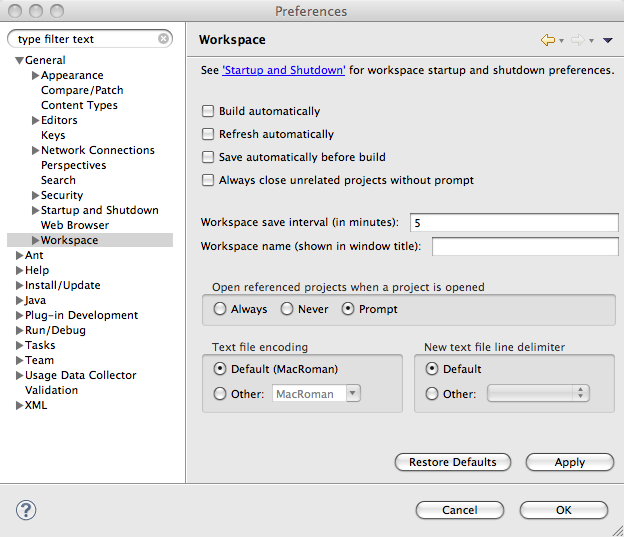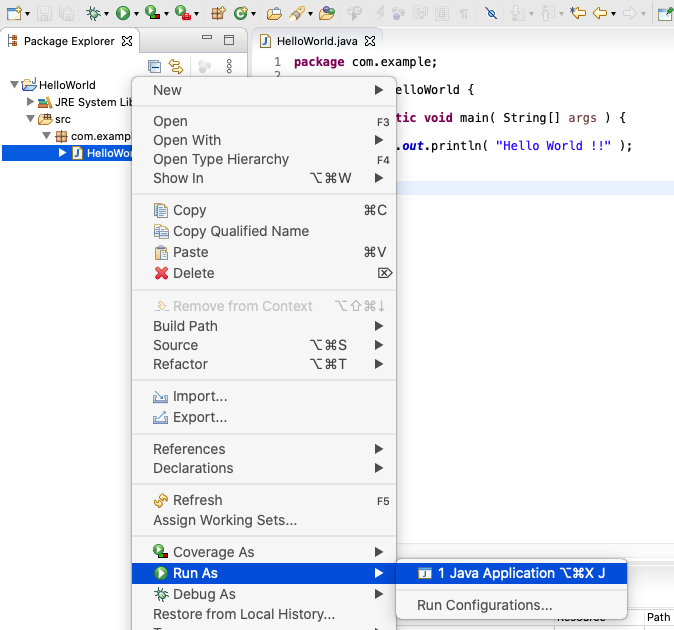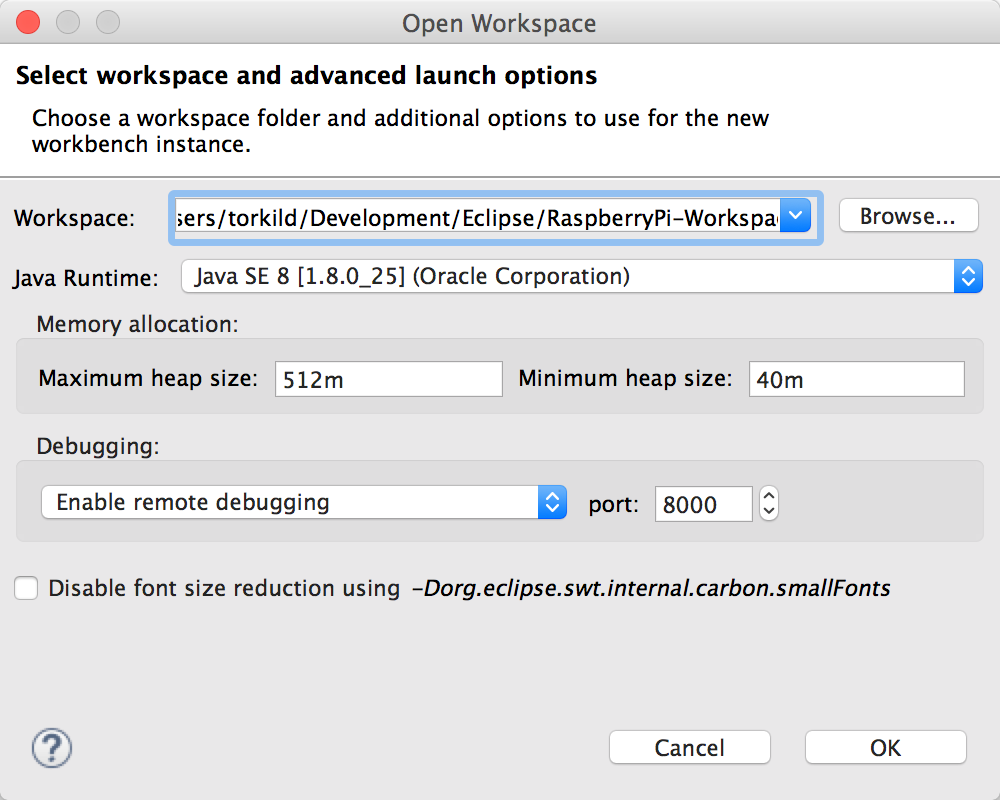
- Run eclipse on mac for mac#
- Run eclipse on mac mac os#
- Run eclipse on mac install#
- Run eclipse on mac generator#
- Run eclipse on mac software#
Run eclipse on mac mac os#
I am compiling with Eclipse a web application which uses JDK7 on a Mac OS 10.9 MacBookPro.Įverything works fine, but Eclipse validation fails with this strange message: She has a Mac, and unfortunately I am not at all familiar with Mac computers. I sent here a war file of a JSF 2.2 application that I created with Eclipse on my computer, which uses Windows.
Run eclipse on mac install#
To install or update the Service Fabric plug-in for Eclipse to the latest version, follow these steps. The plug-in simplifies the process of creating, building, and deploying Java services. Install the Service Fabric plug-in for Eclipse on your MacĪzure Service Fabric provides a plug-in for Eclipse Neon (or later) for the Java IDE. NET Core Service Fabric applications are hosted on.
Run eclipse on mac for mac#
NET Core 3.1 SDK for Mac to start creating C# Service Fabric applications.

įrom inside your project directory, run the install script: cd MyProject.
Run eclipse on mac software#
The software can be installed by using HomeBrew, as follows: brew updateĬurrent versions of brew cask install java may install a more recent version of the JDK.ĭeploy your application on your Mac from the terminalĪfter you create and build your Service Fabric application, you can deploy your application by using the Service Fabric CLI:Ĭonnect to the Service Fabric cluster that is running inside the container instance on your Mac: sfctl cluster select -endpoint To build a Service Fabric Java application on your Mac, JDK version 1.8 and Gradle must be installed on the host machine. Npm install -g generator-azuresfcontainer # for Service Fabric Container ApplicationsĪfter you install the generators, create guest executable or container services by running yo azuresfguest or yo azuresfcontainer, respectively. Npm install -g generator-azuresfguest # for Service Fabric Guest executables To create Service Fabric applications by using Yeoman, follow these steps: npm install -g generator-azuresfjava # for Service Fabric Java Applications
Run eclipse on mac generator#
Install the Yeoman generator that you prefer by following the steps in the getting started documentation. Install the Yeoman template generator on your machine from NPM: npm install -g yo The software can be installed by using HomeBrew, as follows: brew install node Node.js and Node Package Manager (NPM) must be installed on your Mac.

Use the following steps to ensure that the Service Fabric Yeoman template generator is working on your machine: Service Fabric provides scaffolding tools that help you to create a Service Fabric application from the terminal by using the Yeoman template generator. Sfctl cluster select -endpoint Create your application on your Mac by using Yeoman To connect to the cluster before deploying applications run the command below.The CLI commands support interacting with Service Fabric entities, including clusters, applications, and services.

Set up the Service Fabric CLI (sfctl) on your Macįollow the instructions at Service Fabric CLI to install the Service Fabric CLI ( sfctl) on your Mac. Nested container applications are currently not supported.

The following are known limitations of the local cluster running in a container for Mac's: However, we will be using this container in the next step. To stop and clean up the container, use the following command. When it is running, you can view logs using the following command or jump to the dashboard to view the clusters health: docker logs sftestcluster For example, if your application is listening on port 8080, add the following -p tag:ĭocker run -itd -p 19000:19000 -p 19080:19080 -p 8080:8080 -name sfonebox /service-fabric/onebox:u18 If your application is listening on certain ports, the ports must be specified by using additional -p tags. Provide a name for your container instance so it can be handled in a more readable manner.


 0 kommentar(er)
0 kommentar(er)
